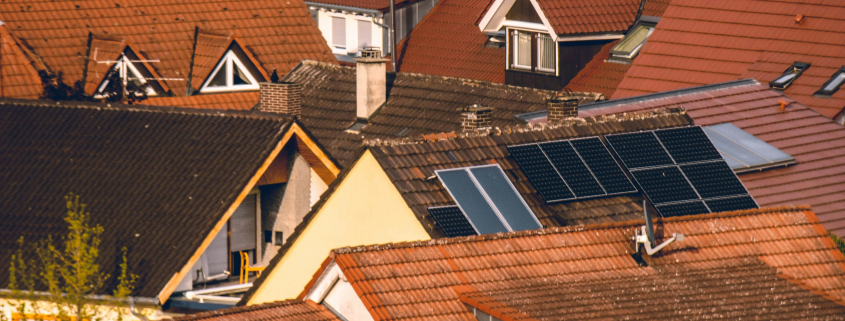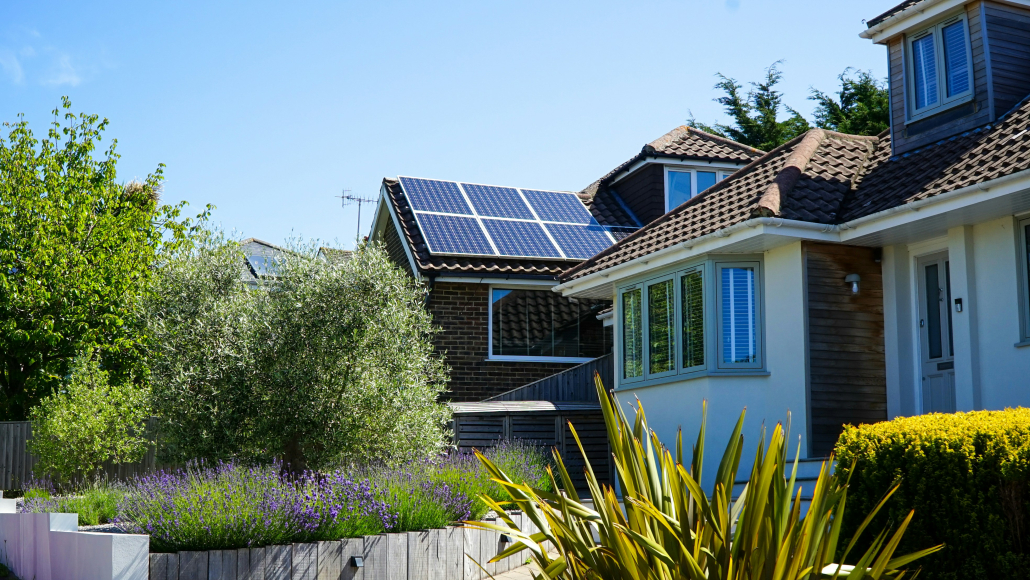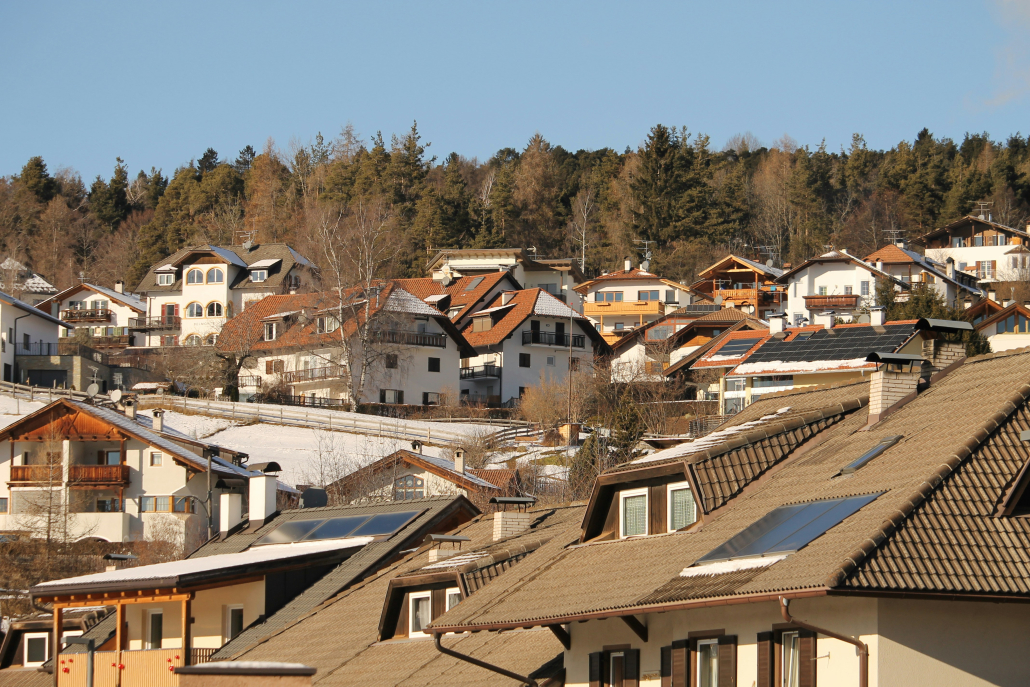Types of Residential Solar Systems
Solar power is becoming increasingly popular with many homeowners as a way of saving money and cutting reliance on grid-supplied electricity. Solar systems are not all the same. Others are grid-based, others use batteries, and others both. There are advantages and disadvantages to each alternative. Which setup works best in your home before you install panels?
You can make a choice based on factors such as budget, location, and the amount of energy you consume daily. This blog describes the different types of residential solar systems. We will have a closer look at grid-tied, off-grid, and hybrid systems. Let’s begin with us.
Grid-Tied vs Off-Grid Systems
The two major solar systems are grid-tied and off-grid systems. A grid-tied system is a connection to your panels and the public electric grid. In cases where your panels produce more energy than you consume, the surplus power is fed back into the grid. In exchange, you receive credits that reduce your electricity bills.
An off-grid system is different. It has no relation to the grid. Instead, it uses batteries to hold energy. The type is widespread in remote communities where individuals cannot connect to the primary electricity grid. Off-grid systems are less interconnected and are usually expensive to install.
The first step to learning about the types of residential solar systems that are available in the market today is to understand what a grid-tied system and an off-grid system are. Learn more about commercial solar options and expert installation on our Commercial Solar Installation Services page.
Types of Grid-Tied Systems
The reason why grid-tied systems are popular is that they are cheap and dependable. Two types of grid-tied solar systems are common.
The former is the batteryless type of system. This installation only requires some solar panels and the inverter to feed the power into the grid. It is cheaper and simpler, but it cannot work during a blackout.
The second type includes a small battery backup. While still tied to the grid, this system can store some energy. It gives you limited power during short outages. Many homeowners prefer this option because it strikes a balance between cost and security.
Both types play a crucial role in the broader category of residential solar systems.
-
On-Grid Solar Systems
The most widely used on-grid solar systems are installed in urban and suburban houses. These systems are connected to the utility grid and are used to reduce electricity bills. Your own home is run using the energy it generates during the day. Any additional electricity is returned to the grid.
On-grid systems are economical in the sense that they do not use batteries. Solar systems are very costly due to the inclusion of batteries. It makes the installation cost remain low by avoiding them.
Net metering also offers credits for any excess energy generated by homeowners. However, grid systems cease to function when the power is shut off. Your panels turn off during a grid outage even when the sun is shining. It is a safety feature for utility workers. For many families, this is the only downside to on-grid solar.
-
Off-Grid Solar Systems
These systems are meant to be independent. They are not tied to the utility grid. They instead store their power in batteries to be used during the nighttime or on cloudy days. The system is most effective in cabins, farms, or homes that lack power lines.
The main benefit of off-grid solar is freedom. You do not pay electricity bills, and you are not bothered by grid failures. Your system is completely solar-powered and battery-powered. But there is a greater cost to this liberty. Batteries become costly and require replacement after several years.
Energy management is the other hurdle. You need to consider how much energy to use, especially in winter or during prolonged periods of cloudiness. Nevertheless, a lot of homeowners are fond of using off-grid systems since there is complete control. This is the most independent of the types of residential solar systems.
-
Hybrid Solar Systems
These solar systems are a combination of grid-tied and off-grid. They are linked to the utility grid, and they have battery storage. In this manner, you have the best of both worlds. You have the option of using solar power when the sun is out, storing some additional energy in batteries, and still being able to use the grid when necessary.
Security is the largest. You will still have electricity backed by your batteries when the grid happens to go dead. It can be used in houses where there are frequent blackouts. Also, a hybrid solar system enables you to utilize power stored at peak times when power is more expensive.
The price of the hybrid-based solar systems is more than that of the plain grid-tied systems. But the extra benefits make them a popular choice. For many families, hybrid systems are the most flexible option among the various types of residential solar systems.
Comparison Between On-Grid, Off-Grid, & Hybrid Solar Systems
Here is a little comparison table that represents the differences in the three home solar setup options:
Feature |
On-Grid System |
Off-Grid System |
Hybrid System |
| Connection | Linked to the grid | No grid connection | Grid + battery backup |
| Cost | Lowest | Highest | Moderate to high |
| Batteries | Not required | Required | Optional but common |
| Works During Outage | No | Yes | Yes |
| Best For | Urban homes with grid access | Remote areas with no grid | Homes needing backup and flexibility |
Which is Best for Homeowners?
The answer to the question is that the optimal choice of solar system is determined by where you live and how much independence you desire to be off the grid. On-grid systems are the most cost-effective and only work in cities and towns where power is stable.
Remote homes where utility is inaccessible are ideal places to install off-grid systems. Hybrid systems are the perfect fit when the families desire to save and be secure.
You should consider your budget, where you live, and how you live before making a choice. An on-grid system is the way to go if you want to save money. Off-grid is the solution if you want independence.
Hybrid is the best way to go in case you want either one. You will know the kind of residential solar system to install, and hence make a wise decision about your house.
Lifespan and Maintenance Needs of These Residential Solar Systems
Every type of residential solar system has parts that last for many years, but each one has different care needs. Panels, batteries, and inverters all play a role in how long the system works well.
-
Solar Panels
The longevity of solar panels should be between 25 and 30 years. They are gradually losing power with age, and continue to generate energy. Little work is required, but dust, pollen, and bird droppings can block sunshine. By washing the panel with water after a few times a year and by examining its cracks, you can maintain its efficiency.
-
Batteries
Panels last longer than batteries. Most last between 5 and 15 years. Lithium batteries are easier to take care of and last longer than lead-acid batteries. To prolong their life, not to empty them and expose them to the heat or damp environments. Batteries are used in off-grid and hybrid systems, so these systems require more attention.
-
Inverters
The durability of inverters is 10 to 15 years. They are the core of the solar system, as they convert solar energy into usable electricity. Inverters have most error codes or warning lights when something is wrong. Horizon inspection allows the identification of problems at an early stage. Maintaining the inverter’s long life also ensures it remains clean and well-ventilated.
-
System Maintenance Differences
On-grid systems need the least care since they do not rely on batteries. Off-grid systems need the most because of battery checks and replacements. Hybrid systems fall in the middle, with both panel cleaning and battery care required.
Conclusion
The correct solar system will depend on your lifestyle and your expectations of energy consumption. An on-grid system can be affordable and easy to install in a city family. An off-grid system with batteries may be needed in a remote home that is not connected to power lines. Hybrid systems will be beneficial to individuals seeking to have backup power while remaining connected to the grid.
Solar panels are an investment that has a long payback period and can reduce your bills and increase the value of your home. In the right system and with easy maintenance, you can have years of reliable power. Solar energy is an intelligent and clean option available to all homeowners today.
FAQs
Can solar systems run AC units?
Yes, solar systems can run AC units. The size of the system and its energy consumption determine the number of hours that can be used to cool the equipment, and in particular during hot sunny days.
What is the number of panels to put on an average home?
Most homes need 15 to 25 panels. It will be determined by the amount of energy consumed, the size of the roof used, the hours of sunlight, and the panel efficiency used.
Will solar systems raise my home value?
Yes, solar systems often raise home value. Buyers like lower electricity bills, stable power, and clean energy. Homes with panels usually sell faster in many housing markets today.
-
Also read: Solar Removal and Installation Services: A Complete Overview
-
Also read: Longest-Lasting Solar Panels



